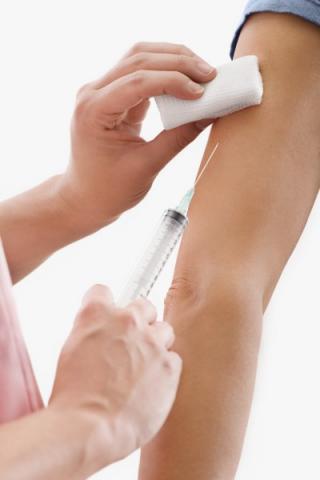Are you at risk from hepatitis C?

Hepatitis C can damage the liver and can lead to years of ill health. The Public Health Agency (PHA) is warning that if you think you have been at risk, you should get tested.
Dr Maureen McCartney, Consultant in Health Protection, PHA said: “The PHA is urging people to come forward and get tested for hepatitis C, as treatment is available. A new updated leaflet is available to give the public information on how you can be infected with hepatitis C and what to do if you might have been at risk.
Currently the greatest risk of contracting the infection in the UK is through sharing equipment for injecting drugs. It is important to stress that people who shared needles years ago, even just once, may be infected and have been undiagnosed for years. Other risks include, having medical or dental treatment in foreign countries with high levels of hepatitis C, having had a blood transfusion before September 1991 or having had tattoo or body piercing with non-sterile equipment.
Treatment for hepatitis C is available and improving all the time, so if people think they may have been exposed to the virus, even if this was many years ago, talk to your GP or nurse and get tested”, added Dr McCartney.
Hepatitis C is a viral infection which causes inflammation of the liver. It is transmitted when the blood of an infected person mixes with a recipient’s blood. In most cases of the infection, people don’t have any symptoms, with many individuals remaining undiagnosed for years, until the disease has significantly progressed. Undiagnosed cases can lead to a person having liver damage, which can result in cirrhosis of the liver, liver cancer or complete liver failure.
For more information on hepatitis C please visit www.publichealth.hscni.net
Contact the PHA Press Office on 028 9031 1611
You could be at risk from hepatitis C if you:
• share, or have shared, equipment for injecting drugs, including needles, syringes, spoons, filters or straws for inhaling cocaine;
• received a blood transfusion before September 1991.
Less commonly hepatitis C can be passed on by:
• a hepatitis C positive mother to her baby, before or during birth;
• unprotected sex with someone who has the virus;
• living in countries where hepatitis C is more common. There is an increased risk of it being passed on through medical and dental procedures.
• Tattooing, ear piercing, body piercing or acupuncture with equipment that is not sterile;
• sharing razors or toothbrushes contaminated with blood from someone who has the virus.
The World Health Organisation (WHO) estimates that 170 million people worldwide are infected with hepatitis C. In the UK, it is estimated that around 185,000 individuals are infected.
